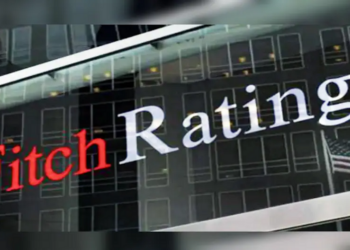In light of the rampaging impact of the COVID-19 pandemic on global supply chains, demand shocks and consequently impact on liquidity and growth prospects, the Central Bank of Nigeria (CBN) announced its initial policy response to the pandemic.
This comes ahead of its Monetary Policy meeting on March 23 and 24. Below are highlights of the bank’s communique:
- All CBN intervention facilities are hereby granted a further moratorium of one year on all principal repayments effective March 1, 2020.
- Interest rates on all applicable CBN intervention facilities are hereby reduced from 9.0% to 5.0% for 1 year effective March 1, 2020.
- The CBN establishes a N50 billion targeted credit facility through the NIRSAL microfinance bank for households and SMEs vulnerable to the COVID-19 pandemic.
- The CBN hereby opens intervention facilities and loans to pharmaceutical companies intending to expand operations and set up drug manufacturing plants.
- The CBN hereby grants Deposit Money Banks leave to consider temporary and time-limited restructuring of the tenor and loan terms for businesses and households most affected by the outbreak of COVID-19.
- Strengthening of the CBN’s LDR policy to support credit growth. The CBN would further support industry funding levels to maintain DMB’s capacity to direct credit to individuals, households and businesses.
READ MORE: Oil price crash, Coronavirus: The trouble that lies ahead for Nigeria

We recognize that the COVID-19 pandemic has impacted global supply chains and created demand shocks. Consequently, this has impacted revenue and created cashflow constraints for companies vulnerable to the spillovers of the outbreak.
Granted some Nigerian companies, which rely on supplies from China, may have met with tough times, we believe the most serious negative impact of the outbreak on the Nigerian economy stems from weaker oil prices and pressured external conditions which have led to rising FPI outflows and consequently exchange rate panic. These pressures have significantly raised the risk of an economic slowdown and a possible recession in the medium term.
In light of this, we don’t think the CBN’s policy response addresses the key risks faced by the Nigerian economy from the COVID-19 outbreak. The policies highlighted above are geared towards freeing up more liquidity into the financial system and relaxing debt covenants for companies rather than tackling exchange rate concerns.
We note the CBN has earlier stated it believed market fundamentals do not support a devaluation. Thus, we do not expect any major reaction from the apex bank on that front.
READ ALSO: REMINDER: Nationwide implementation of cashless policy starts April 1st
Nevertheless, we think the policies will be beneficial for companies who currently enjoy CBN intervention loans. With an extra 1-year moratorium and lower interest rate (from 9.0% to 5.0%), these companies would enjoy improved liquidity. In addition, the CBN’s regulatory forbearance on loan restructuring would further support credit quality and prevent a credit crunch in the event of a protracted low oil price environment.
_______________________________________________________________________
CSL STOCKBROKERS LIMITED CSL Stockbrokers,
Member of the Nigerian Stock Exchange,
First City Plaza, 44 Marina,
PO Box 9117,
Lagos State,
NIGERIA.























